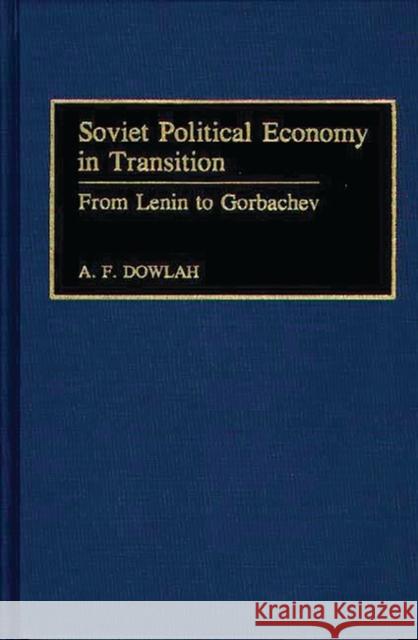Soviet Political Economy in Transition: From Lenin to Gorbachev » książka
Soviet Political Economy in Transition: From Lenin to Gorbachev
ISBN-13: 9780313279447 / Angielski / Twarda / 1992 / 296 str.
Situating Gorbachev and perestroika historically and ideologically, this book provides a comprehensive analysis of Soviet political economy in the context of socialist theory and seven decades of its application in the Soviet Union. A. F. Dowlah challenges the belief that socialism is sternly committed to centralized economic and political structures, and claims that socialism contains several theories, some more decentralized or democratic, others more authoritarian.
Although the contemporary crisis in the socialist economies powerfully challenges the foundations of socialist theory and practice, Gorbachev, up until the coup attempt of August 1991, claimed that perestoika embodied more socialism, not less, and he was looking within the socialist tradition to solve contemporary Soviet problems. This work examines Gorbachev's claim and evaluates perestroika as a strategy of transition to a new variant of socialism. Based on thorough inquiry, textual evidence, and historical facts, the study concludes that Gorbachev's claims are substantially legitimate, and that a democratic version of socialism is possible within the Russian socialist tradition. It remains to be seen, however, in light of recent political and economic developments, whether this, or some more radical set of reforms, will emerge in Gorbachev's troubled economy.











